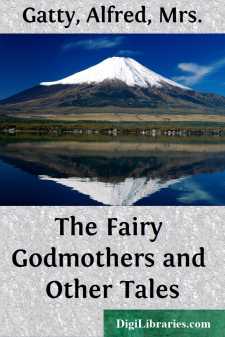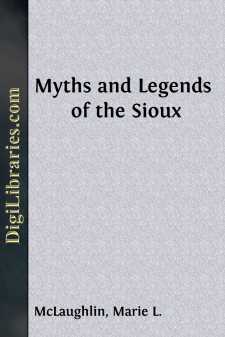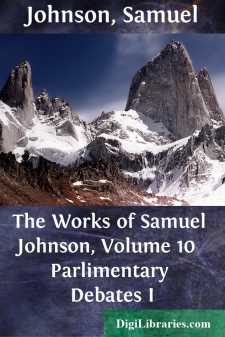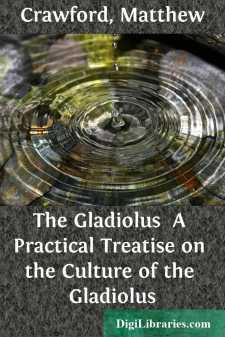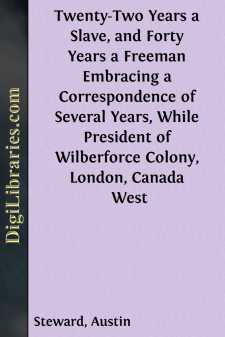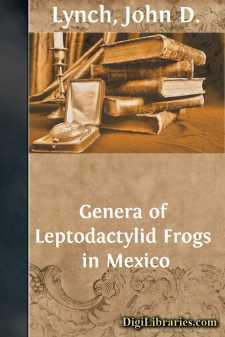Fiction
- Action & Adventure 180
- Biographical 15
- Christian 59
- Classics 6965
- Coming of Age 5
- Contemporary Women 3
- Erotica 8
- Espionage/Intrigue 12
- Fairy Tales, Folklore & Mythology 236
- Family Life 169
- Fantasy 117
- Gay 1
- General 596
- Ghost 32
- Historical 808
- Horror 43
- Humorous 160
- Jewish 25
- Legal 4
- Medical 22
- Mystery & Detective 315
- Political 49
- Psychological 41
- Religious 64
- Romance 159
- Sagas 11
- Science Fiction 730
- Sea Stories 113
- Short Stories (single author) 537
- Sports 10
- Suspense 1
- Technological 8
- Thrillers 2
- Urban Life 31
- Visionary & Metaphysical 1
- War & Military 173
- Westerns 199
Fiction Books
Sort by:
by:
Alfred Gatty
THE FAIRY GODMOTHERS. In one of the beautiful bays on the coast of Fairy Land, a party of Fairies was assembled on a lovely evening in July. There are many beautiful bays on the coast of England, and there is one especially, my dear little readers, which you and I know of, where a long line of grand old rocks stretches far into the sea on the left-hand extremity, while in the distance to the right a...
more...
FOREWORD In publishing these "Myths of the Sioux," I deem it proper to state that I am of one-fourth Sioux blood. My maternal grandfather, Captain Duncan Graham, a Scotchman by birth, who had seen service in the British Army, was one of a party of Scotch Highlanders who in 1811 arrived in the British Northwest by way of York Factory, Hudson Bay, to found what was known as the Selkirk Colony,...
more...
by:
Samuel Johnson
PREFATORY OBSERVATIONS TO THE PARLIAMENTARY DEBATES. The government of this country has long and justly been considered the best among the nations of Europe; and the English people have ever evinced a proportionate desire for information in its proceedings. But in the earlier days of our constitution, we shall find that much jealousy on the part of our rulers debarred the people from access to the...
more...
by:
Matthew Crawford
CHAPTER I. History and Development. The gladiolus comes principally from South Africa, where about fifty species have been discovered. It is also a native of middle Africa, central and southern Europe, Persia, Caucasus, and the country around the eastern end of the Mediterranean. About forty additional species have been found in these localities, and one in Hampshire, England. These have been...
more...
The Future. The beautiful part about the colored race in America, is the future. As a mixed race we are undeveloped. We may become whatever we WILL to become. This race is a growing people. The future is veiled but it may reveal some strange things to the world. What opportunities there are for leadership! If there were only some ways to "squelch" the fakers and arouse the dreamers! If each...
more...
by:
Maxfield Parrish
PREFACE Little excuse is needed, perhaps, for any fresh selection from the famous "Tales of a Thousand and One Nights," provided it be representative enough, and worthy enough, to enlist a new army of youthful readers. Of the two hundred and sixty-four bewildering, unparalleled stories, the true lover can hardly spare one, yet there must always be favourites, even among these. We have chosen...
more...
by:
Charles Kingsley
PREFACE A picture of life in the fifth century must needs contain much which will be painful to any reader, and which the young and innocent will do well to leave altogether unread. It has to represent a very hideous, though a very great, age; one of those critical and cardinal eras in the history of the human race, in which virtues and vices manifest themselves side by side—even, at times, in the...
more...
by:
Austin Steward
CHAPTER I. SLAVE LIFE ON THE PLANTATION. I was born in Prince William County, Virginia. At seven years of age, I found myself a slave on the plantation of Capt. William Helm. Our family consisted of my father and mother—whose names were Robert and Susan Steward—a sister, Mary, and myself. As was the usual custom, we lived in a small cabin, built of rough boards, with a floor of earth, and small...
more...
DEAD SHOT BAKER "Which you never knows Dead Shot Baker?" This, from the old cattleman, with a questioning glance my way. "No? Well, you shore misses knowin' a man! Still, it ain't none so strange neither; even Wolfville's acquaintance with Dead Shot's only what you-all might call casyooal, him not personally lastin' more'n three months. "This yere Dead Shot...
more...
by:
John D. Lynch
INTRODUCTION According to the most recent review of the Mexican amphibian fauna (Smith and Taylor, 1948), six genera of leptodactylid frogs occur in México. One other genus, Pleurodema, occurs in Lower Central America. Smith and Taylor recognized one species of Engystomops, 28 of Eleutherodactylus, three of Leptodactylus, eight of Microbatrachylus, 12 of Syrrhophus, and five of Tomodactylus....
more...


